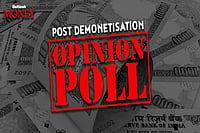In line with market expectations, the Reserve Bank of India (RBI) on Wednesday decided to hold key policy rates in its fifth bi-monthly monetary policy review.
The decision was prompted by the Monetary Policy Committee's (MPC) concerns over spike in inflation in the second half of the year. It is expected to be in the range of 4.2-4.6 per cent this year. "Two of the key factors determining the cost of living conditions and inflation expectations, i.e., food and fuel inflation, edged up in November," the policy statement stated. Pointing out that inflation expectations of households surveyed by the RBI had already firmed up, it hinted that any increase in food and fuel prices could push up inflation further.
"The decision to keep the policy rate unchanged is in line with expectations. RBI has displayed prudence in highlighting adverse risks to the inflation trajectory," said Chanda Kochhar, MD and CEO, ICICI Bank, noting that the central bank had taken cognizance of improvement in growth prospects on account of various structural reforms implemented by the government, including bank recapitalisation.
While the neutral stance was widely anticipated, the tone of the policy statement on core and headline inflation seems to have taken industry-watchers by surprise. “We seem to be headed for a long pause. Going forward, we believe that the RBI policy would be data dependent and would also begin to factor in the fiscal outcomes," said Lakshmi Iyer, CIO (Debt) and head, products, Kotak Mutual Fund. She believes that corporate bond based accrual funds and short term bond funds may be viable investment options in this backdrop.































